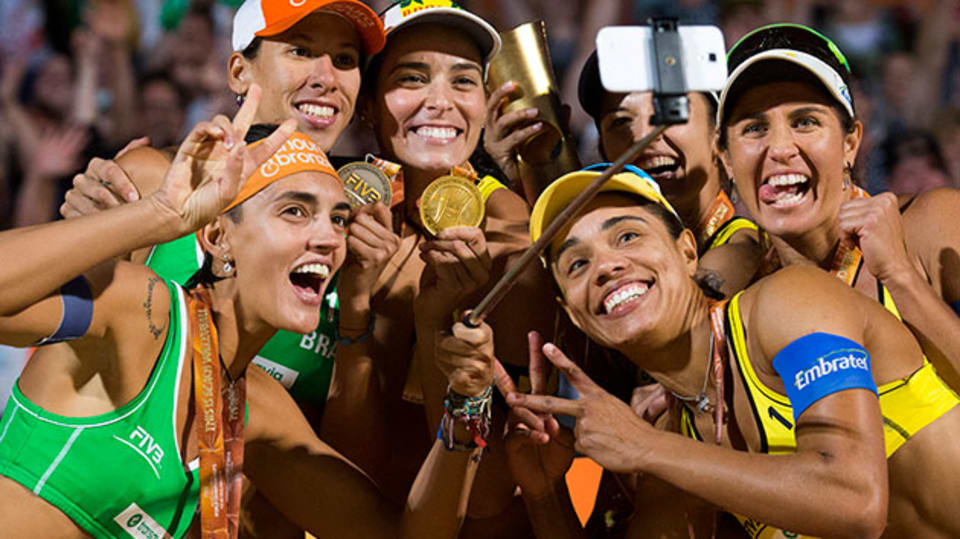
After football, volleyball – in both its indoor and beach forms – is the second most popular sport in Brazil and not surprisingly, the country has produced some of the most successful teams in history.
Perhaps surprisingly, though, beach volleyball didn’t really take off in Brazil and elsewhere in South America until the 1980s. The sport had already growing at an exponential rate across the USA by the time that Brazil first hosted its tournament in 1950. From that point onwards, more and more facilities appeared across the country, and by the 1980s the beaches of Copacabana and Ipanema were crammed with courts and nets.
In 1986, Rio de Janeiro hosted the first international beach volleyball exhibition which was watched by 5,000 spectators. A year later, the city hosted an international FIVB-sanctioned tournament on Ipanema Beach. Two FIVB men’s tournaments followed in 1988 and 1989 before the FIVB Beach Volleyball World Series arrived in 1990, taking place in front of sell-out crowds.
©Getty Images
The Atlanta Games in 1996 saw the debut of beach volleyball as an Olympic sport, and it was no surprise to see Brazil and USA dominating the podiums.
Brazil entered two teams into both the men and women’s competitions. The men’s pairings of Roberto Lopes and Franco Neto, and Ze Marco de Melo and Emanuel Rego finished outside the medals, but the country’s women’s teams more than made up for it, with top seeds Sandra Pires and Jackie Silva overturning compatriots Monica Rodrigues and Adriana Samuel in the final to collect gold and silver.
Brazil’s women took two places on the podium again four years later in Sydney, though Adriana Behar and Shelda Bede defeated by the host nation’s pair in the final and were forced to settle for silver. Adriana Samuel and Sandra Pires collected Bronze.
Behar and Bede added another silver in Athens in 2004, but this time round it was Brazil’s men who took centre stage. The pairings of Márcio Araújo and Benjamin Insfran, and Emanuel Rego and Ricardo Santos were seeded one and two respectively. And while there was disappointment for the favourites, Rego and Santos won gold after a scintillating final against Spanish duo Javier Bosma and Pablo Herrera.
Now, as the country prepares to host the Olympic Games in 2016, both the men and women’s teams will feel they are better placed than ever to succeed.
One thing is for sure, all of the tools are in place for the country to continue exerting a major influence on the sport they embraced with such gusto in the 1980s.
Competitors and spectators in Rio next summer can certainly expect the host nation to put on a show worthy of this scintillating sport as it returns to the Olympic stage.
